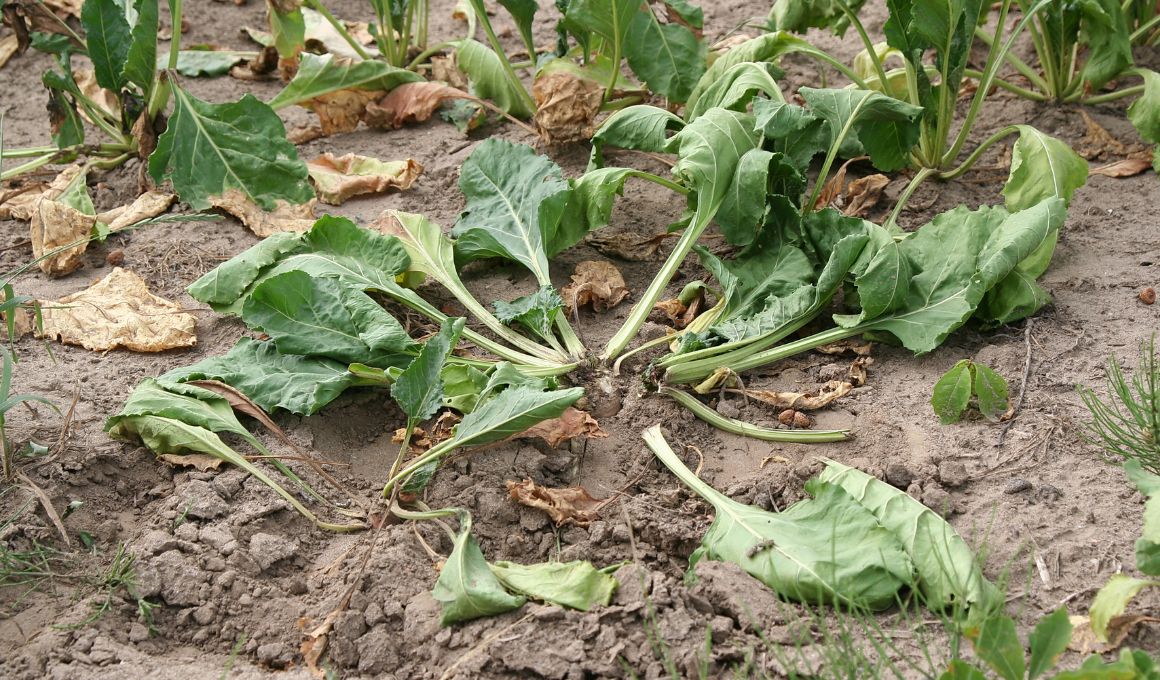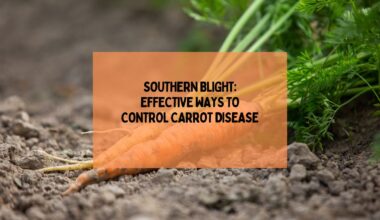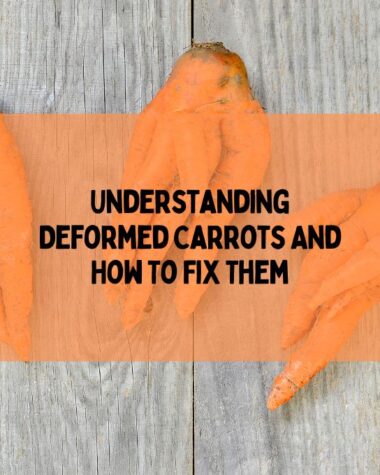Why Your Carrot Seedlings Are Dying? Learn how to troubleshoot. Poor Soil Drainage, Overwatering, Lack of Air Circulation, Crowded Seedlings, Contaminated Soil, Planting Too Deep, Cold Temperatures, High Humidity, Lack of Light, Poor Seed Quality, and Lack of Nutrients.
Carrots are one of the most popular and versatile root vegetables worldwide. Growing carrots from seed can be a rewarding experience, but it can also be challenging, especially when dealing with damping off.
Damping off is a common problem affecting many gardeners, particularly those new to gardening. In this article, I will discuss why carrot seedlings fail and what causes damping off.
Carrot Damping Off

Damping off is a fungal disease that can affect many different types of plants, including carrots. A common problem can cause seedlings to wilt, stunt, and die. Damping off is caused by a fungal disease that thrives in damp, humid conditions.
What are the Symptoms of Carrot Damping Off?
The symptoms of carrot damping off include sudden collapse and wilting of seedlings. The seedlings may turn yellow or brown, and their stems may become soft and mushy. The seedlings may also show rot or mold on their stems or roots.
What Causes Carrot Damping Off?
Carrot damping off is caused by a fungal disease that thrives in damp, humid conditions. The fungus can be present in the soil, on the seed, or in the air. It’s essential to identify the cause of the damping off so that you can take appropriate measures to prevent it from happening. Some of the common causes are mentioned below.
- Poor Soil Drainage

Poor soil drainage is one of the most common causes of carrot damping off. If the soil is too wet, it can create the perfect conditions for the fungus to grow. To prevent damping off due to poor soil drainage, ensure your soil is well-draining and that excess water can drain away from the plant roots.
Related Read
- The Ultimate Guide To Cucumber Pests and Diseases
- How to Find, Prevent, and Treat Zucchini Plant Problems?
- 10 Tomato Diseases – How to Recognize, Treat, and Prevent?
- Overwatering

Overwatering can also cause damping off. The soil is constantly saturated, creating a perfect breeding ground for the fungus. To prevent damping off from overwatering, ensure that you only water your plants when needed and allow the soil to dry out between waterings.
- Lack of Air Circulation

Lack of air circulation can also contribute to damping off. Seedlings need good air circulation to grow strong and healthy; if they’re crowded together, they may need more air. To prevent damping off due to lack of air circulation, ensure your seedlings are spaced out enough to allow for good airflow.
- Crowded Seedlings

Crowded seedlings can also lead to damping off. When planted too close together, seedlings can create a microclimate perfect for the fungus to grow. To prevent damping off due to crowded seedlings, make sure that you plant your seeds at the appropriate distance apart.
- Contaminated Soil

Contaminated soil can also be a source of the fungus that causes damping off. If you’re reusing soil, sterilize it first to kill any fungi or bacteria that may be present. You can sterilize soil by heating it in an oven or microwave or treating it with a chemical sterilizer.
- Planting Too Deep

Planting carrot seeds too deep can also contribute to damping off. Seeds may need more oxygen when planted too deep, leading to weak and unhealthy seedlings. To prevent damping off due to planting too deep, make sure that you plant your seeds at the appropriate depth.
- Cold Temperatures

Cold temperatures can also contribute to damping off. If the soil is too cold, it can slow down the growth of the seedlings and make them more susceptible to the fungus. To prevent damping off due to cold temperatures, make sure that you plant your seeds when the soil is warm enough for them to germinate.
Also, Read
- The Management Of Carrot Cotton Root Rot And Its Treatment
- The Ultimate Guide To Recognizing And Managing Cercospora Leaf Blight In Carrots
- Can You Grow Carrots? / What Are Some Common Carrot Varieties?
- High Humidity

High humidity can also contribute to damping off. When the air is too humid, it creates the perfect conditions for the fungus to grow. To prevent damping off due to high humidity, ensure you provide good ventilation for your seedlings and avoid overwatering them.
- Lack of Light

Lack of light can also contribute to damping off. Seedlings need sufficient light to grow strong and healthy. They may become weak and more susceptible to fungus if they’re not getting enough light. To prevent damping off due to lack of light, ensure your seedlings get enough light or provide artificial lighting if necessary.
- Poor Seed Quality

Poor seed quality can also contribute to damping off. If the seed is infected with the fungus, it can lead to damping off in the seedlings. To prevent damping off due to poor seed quality, purchase high-quality, disease-free seeds from a reputable supplier.
- Lack of Nutrients

Lack of nutrients can also contribute to damping off. If the seedlings are not getting enough nutrients, they may become weak and more susceptible to the fungus. To prevent damping off from lacking nutrients, ensure that you provide your seedlings with a balanced fertilizer and that the soil has sufficient nutrients.
Conclusion
In conclusion, damping off can be a frustrating problem for carrot growers. However, it can be prevented by identifying the cause of the problem and taking appropriate measures. To prevent damping off, ensure your soil has good drainage, avoid overwatering and ensure adequate air circulation.
Plant your seeds at the appropriate depth and spacing, and provide sufficient light and nutrients. With these prevention measures in place, your carrot seedlings can grow strong and healthy without the threat of damping off.
Happy Gardening!







